#Bruce can only 'win' by rehabilitating Joker. or not even
Explore tagged Tumblr posts
Text
"Murder is Werewolves" - Batman
I don't got the SPOONS to do this thought train justice, I have seriously been trying to write this thing for MONTHS so just, idk, have this half baked skeletal outline of the essay I guess:
I don't believe that Batman's no-kill rule is primarily about rehabilitation or second chances.
His refusal to believe that Cassandra could have killed someone when she was eight years old because "how could a killer understand my commitment not to kill" is absolute fucking MOON LOGIC from a rehabilitationist standpoint. No jury on the planet would think for even a second that she could reasonably be held accountable for her actions in that situation! Her past cannot condemn her to being incapable of valuing human life under a rehabilitation centering framework. However, Batman's reasoning makes perfect sense if he believes that killing is a spiritually/morally corrupting act which permanently and fundamentally changes a person, and that corruption can never be fully undone.
Dick Grayson killing the Joker is treated both narratively and by Batman as an unequivocally WIN for the Joker. The Joker won by turning Nightwing into a killer. Note that this is during a comic in which the Joker transforming people was a major theme! Batman didn't revive the Joker because the Joker deserved to live; he revived the Joker to lift the burden on Dick.
His appeal to Stephanie when she tried to kill her dad is that she shouldn't ruin her own life. He gives no defense of Cluemaster's actual life. Granted this is a rhetorical strategy moment and should be taken with a generous pinch of salt, but it fits in the pattern.
When Jason becomes a willful killer, he essentially disowns him, never treats him with full trust ever again, and... Well, we can stop here for Bruce's sake. Bottom line is that his actions towards Jason do not lead me to believe that he thinks Jason can become a better person without having his autonomy taken from him, either partially or fully.
The Joker is, for better or worse, the ultimate symbol and vessel of pure, irredeemable evil in DC comics now. He hasn't been just another crook in a long time. He will never get better, he will only get worse. If you take it to be true that the Joker will not or can not rehabilitate, then there's no rehabilitationist argument against killing him.
Batman does not seem to consider it a possibly that he'll rehabilitate. Batman at several points seems to think that the Joker dying in a manner no one could have prevented would be good. Yet Batman fully believes that if he killed the Joker, he himself would become irredeemable.
Batman's own form of justice (putting people into the hospital and then prison) is fucking brutal and clearly not rehabilitative. He disrespects the most basic human rights of all criminals on a regular basis. It is genuinely really, really weird from a rehabilitationist standpoint that his only uncrossable line is killing... But it makes perfect sense if he cares more about not corrupting himself with the act of killing than the actual ethical results of any individual decision to kill or not kill.
In the real world cops are all bastards because they are too violent to criminals, even when that violence doesn't lead to death. Prison is a wildly evil thing to do to another human being, and you don't use it to steal away massive portions of a person's life if your goal is to rehabilitate them. In the comic world, Batman is said to be necessary because the corrupt cops are too nice to criminals and keep letting them out of jail. I don't know how to write a connector sentence there so like I hope you can see why this bothers me so damn much! That's just not forgiveness vibes there Batman!!
I want to make special note here of the transformative aspect. You don't simply commit a single act when you kill, no, you become a killer, like you might become a werewolf.
The narrative supports this a lot!
Why did Supes go evil during Injustice? He killed the Joker. Why did Bruce become the Batman Who Laughs? Bruce killed the Joker. Why was Jason Todd close to becoming a new Joker during Three Jokers? Because he killed people, to include the Joker.
Even if these notions of redemption being impossible aren't the whole of his reasoning (people never have only one reason for doing what they do) it is a distinct through-line pattern in his actions and reasoning, and it is directly at odds with notions of rehabilitation, redemption, and second chances.
So why does he give so many killers second chances?
Firstly because this doesn't apply to all versions of Batman. Some writers explicitly incorporate rehabilitation and forgiveness into his actions. You will be able to provide me with examples of this other through-line pattern if you go looking for them. The nature of comics is to be inconsistent.
Secondly the existence of that other pattern does not negate the existence of this one. People and characters are complex, and perfectly capable of holding two patterns of belief within themselves, even when they conflict to this degree. You can absolutely synthesize these two ideas into a single messy Batman philosophical vibescape.
Finally and most importantly to this essay: he has mercy on killers the same way that werewolf hunters sometimes have mercy on someone who is clearly struggling against their monsterous nature, especially if they were turned in exceptional circumstances or against their will. They understand that they are sick, damned beasts, cursed to always be fighting against themselves and the evil they harbor within. It is vitally kind to help them fight themselves by curtailing their autonomy in helpful ways and providing them with chances to do some good to make up for their eternal moral deficiency.
I think in many comics Batman views killers as lost souls. Battered and tormented monsters who must be pitied and given mercy wherever possible. (The connections to mental health, addiction, and rampant, horrifying ableism towards people struggling with both is unavoidable, but addressing it is sadly outside of the scope of this essay.)
Above all, the greatest care possible must be taken to never, ever let yourself become one of them, because once you have transformed the beast will forever be within you growing stronger.
To Batman, it is the most noble burden, the highest mercy, the most important commandment: Thou shalt suffer the monsters to live.
#batman#batman negative#batsalt#okay hopefully that will let peeps who don't wanna see me rant against bats avoid this?#i could write several books on the moral and ethical philosophies at play in the Batfam tbh#I'm like kinda mostly happy with this#pretty good for being slammed out in three hours while baking brownies#inspired muchly by my friend's talk about Batman acting in accordance with Presbyterian predestination#and how he is one of the most carceral of all superheroes#all people merely revealing through their actions what sort of person they already are#punishing them in the hopes they can suffer enough penance on earth to escape hell#how that can look like rehabilitation or redemption at a glance#but functions in a fundamentally different way#anyway hope this mess was an interesting read!#damian's tomfoolery
256 notes
·
View notes
Note
the fact that joker needs batman more than he needs joker is a very interesting factor of batjokes, makes me bitter as fuck (pardon my language), but still, a very interesting part of their relationship.
never have i thought that batman and joker's relationship would hit so close to home for me. in one of your posts ive seen someone mention that joker loves but hates batman for that exact reason and man. why did they make joker so damn relatable.
Yeah, it's definitely a conflict on Joker's part, which tends to get a bit overlooked in fandom. Joker is obsessed with, and in love, with Batman -- but he doesn't always like it. He's been trying to kill the guy and telling him he hates him, almost as frequently as he's told him he loves him. But yeah, both me and @lankylordoflevity have discussed this somewhere in my asks before.
But you know, while Joker does undoubtedly need Bruce more... his love for Bruce is a lifeline in many ways. His obsession with Batman gave him a purpose, kept him alive after he fell into the acid vat; his love is everything he has that matters, but it's so all-encompassing because he's got absolutely nothing else. Joker doesn't have a family, or any kind of moral rules, or anything that important to him. While Joker is conflicted about his dependence on Batman's existence, at the end of the day, to him... this love gives much more than it takes away.
But Bruce stands to lose so much. His inability to let Joker go has caused so much harm already. He's made some very questionable choices over time, among which him nearly killing Jason at the end of UtRH to save Joker's life is probably the biggest. His relationship with Jason suffered as a result; all of his relationships suffer from it, one way or another. After being shot in the spine, Barbara had to hear that Batman was seen laughing together with the man who shot her. Over the years, she had to watch Bruce go out of his way to save Joker's life, even when she asked him not to, even when it wouldn't have contradicted Bruce's rules to let Joker die. His relationship with Joker was a big obstacle even in his relationship with Selina; that's kind of the plot of Batman/Catwoman. And this is something Snyder saw too -- how difficult this pattern of Bruce's is to overlook, and how hard the Batfamily avoids addressing it. Death of the Family is literally about the impact of Bruce's selfish and reckless actions regarding Joker on the Family, and the understandable rift that follows when they can't help but realize Joker wasn't wrong. Because the reality is, Bruce has saved Joker's life so many times and in such ridiculous conditions at this point that it's baffling. And what Joker keeps doing after is more murder, more destruction, and worst of all: he keeps being a danger to all the people Bruce loves. Yet Bruce can't find it in him to genuinely let him die.
I guess, what I mean is, Bruce is the one to suffer the biggest consequences for his side of things. Hundreds of deaths, untold destruction, the eternal possibility of Joker crossing another line and killing more of his Family. Joker may need Batman more because he's got nothing else... but how many more excuses can Bruce come up with, to himself and to others, for the fact he keeps risking so much to keep Joker alive? In the end, what's crazier? Needing someone so badly that loving them is barely a choice, or choosing someone again and again no matter the costs while claiming you don't love them?
Don't know if that helps with the bitterness, Anon. Kind of ended up going off with my own thoughts about this. But for me a fascinating part of Batjokes is Bruce's own side of things, that often gets dismissed as him not reciprocating, or him being less invested. Joker is loud and vocal about his love, and it's easy to take him on his word; when actually, Joker would be the first to balk at the idea of a relationship that involved anything other than violence. Bruce is vocal about his hatred for Joker and his wish that Joker would die, but his actions contradict that time and time again; when he's the one to reach out and the one to keep Joker alive, even when Joker himself is trying his damndest to die. As the villain, if someone else murders him, or if Bruce snaps and kills him, Joker... wins. It's what he wants. But Bruce loses when he keeps Joker alive, and he'd lose himself if he finally murdered Joker.
One way or the other, Bruce always loses.
#asks#joker#batjokes#batjokes meta#my meta#Bruce can only 'win' by rehabilitating Joker. or not even#he can only win by HELPING Joker and in the process making him stop killing#and also it needs saying that. in many ways Bruce perpetually saving Joker IS a consequence of Joker's plot armor#and the fact DC needs to keep him alive so they can keep telling stories#but you know what. even then I feel like they could've cut down on the sheer amount of times Bruce had to save Joker#at the cost of others#I get that it's a compelling moral dilemma since we're talking about his nemesis and everything#but overusing it this way led to THIS. to decades of Bruce choosing to keep Joker alive#and Doylist perspective aside. from a purely Watsonian standpoint. how the hell can you explain it at this point#other than through an emotional attachment#it's such a cliche but I am hesitant about the word 'love' for it#both on Bruce's and Joker's side#because it's just so. fucking insane#what they have encompasses half the spectrum of human emotion. maybe more
144 notes
·
View notes
Note
Do you think Jason Todd fandom is kinda toxic? Because it seems like NO MATTER what DC do, there'll always be complains. Forget the bad adaptation like Titans. Even Judd Winick cannot escape the criticism with how he potrayed Robin!Jason. They just never satisfied.
SORRY, IT TOOK ME SO LONG TO RESPOND TO THIS. I just moved from Washington D.C. to Seattle, which, for my non-American friends, that's 4442km away. And I DROVE THERE ALL BY MYSELF. And now I'm trying to find new work in a new city and trying to stay mentally healthy and positive. Life is exciting but hard and scary.
*sighs*
As someone who was a fandom elder with V*ltr*n. I've seen some of the worst when it comes to fandom behavior. I'm talking people baking food with shaving razors and trying to give them to the showrunners. I'm talking leaking major plot details and refusing to take it down unless they make their ship canon (I am looking at you, Kl*nce stans) For the most part, DC Comics has had a decades-long reputation of treating their fans like trash and not caring what they think so from what I've seen, we all just grumble and complain in our corners of the internet about how we don't like how X comic portrays Jason Todd.
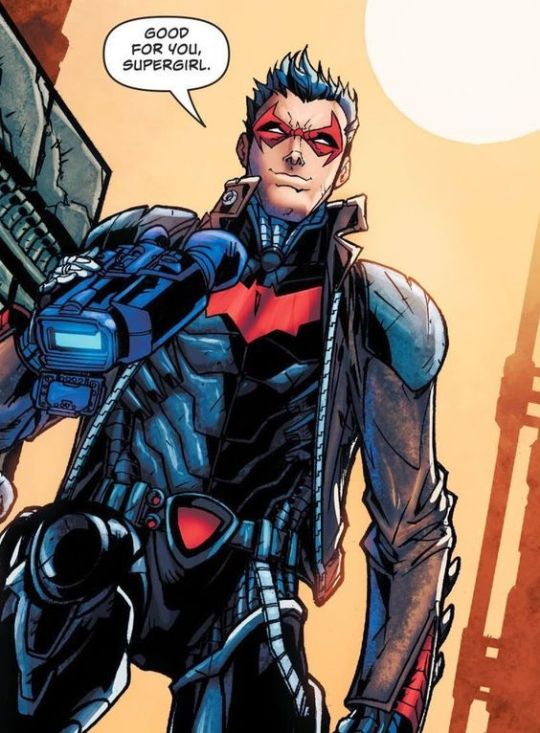
The challenge with Jason Todd is that he's your clinical anti-hero, the batfamily's Draco in Leather Pants, he's a jerkass woobie, and on top of all of that, he's a Tumblr sexyman. It's a perfect storm for a very fun but frustrating character to be a fan of. It doesn't help that every writer decides to re-invent the wheel every time Jason comes up so his canon lore is confusing at best and inconsistent as a standard.
I guess starting with a general brief on who Jason is and what is uniform about him with every instance he's appeared in comics/media.
Grew up in a poor family in Gotham with a dad who was a petty-mid-level criminal, and a mother who dies of a drug overdose.
Survives on the street on his own by committing petty crimes and potentially even engaging in sexual acts to keep himself alive.
Is cornered by Batman and taken in after Dick Grayson quits/is fired
Becomes the second Robin, but is known for being the harsher, more brutal Robin.
Is killed by Joker after being tortured, but somehow comes back to life and regains senses through the Lazarus Pit
Resolves himself to be better than Batman by basically being Batman but kills people.
Where there has been a lot of conflict in the fandom is the fact that Jason Todd is not a character that is written consistently. DC Comics loves to go with the narrative that Jason was "bad from the start" and was the "bad robin" when, yes, he has trouble controlling his anger, but he also still is just as invested in seeing the best of Gotham City and trying to be a positive change for the world as any other DC Comics hero.
Where I get frustrated with the fandom is its ability to knit-pick every detail of a comic they don't like while completely disregarding everything that makes the comics great and worth it to read. My example being Urban Legends. To which most people had pretty mixed reactions to. I was critical of the comic at first but as it went along I ended up really liking it. I have a feeling DC Comics went to Chip Zdarsky and told him he had 6 issues to bring Jason back into the Bat Family, and honestly he didn't do a bad job. Did it feel rushed? Absolutely. I wish there was more development of Jason and Bruce's characters and their dynamic as a whole. However, where I see a lot of people being angry and upset with Urban Legends is that they feel Zdarsky needlessly wrote Jason as an incompetent fool who needs Bruce to save him.
Whether or not that was the intention of Zdarsky is up to debate. However, and this may be controversial, but I don't think he wrote Jason Todd out of character at all. For as fearsome, intimidating, and awesome as Red Hood is. Jason is a character who is absolutely driven by his emotions. Why do you think he donned the role of Red Hood? As a response to his anger towards The Joker for killing him, and towards Bruce for not taking action against The Joker and for seemingly replacing him so quickly after he died. Jason didn't care about being the murderous Robin Hood or for being the bloody hammer of justice against N*zi's and P*d*ph*les. He only cared originally about making The Joker and Bruce pay. It wasn't until he trained under the best assassins in the world and realized most of them were horrific criminals who trafficked children and were p*dos that Talia began to realize that the teachers that she sent Jason to train under started dying horrific and painful deaths.
The entire story of the Cheer story in Batman Urban Legends was started because it finally forced some consequences upon Jason. Tyler, aka Blue Hood's father was a drug dealer who gave his supply to his wife and kids. And when Tyler's father admitted he gave the drugs to Tyler, it immediately made him fall within the self-imposed philosophical kill-list of Jason Todd. And Jason, well, he proceeds to kill Tyler's father. When this happens, Jason is in shock. Tyler's dad fit the bill to easily and justifiably be killed by Jason. We've never seen Jason having to deal with the consequences of being a murderous vigilante on a micro-level. When Jason realizes what he's done in that he's murdered Tyler's dad, he's shocked. He tells Babs the truth. He does a rational thing because he's in shock. He doesn't know what to do, he never has had to face the consequences of his actions as Red Hood and now the gravity of befriending a child as a vigilante hero who kills people just set in when he killed the father of the same child he was just introduced to.
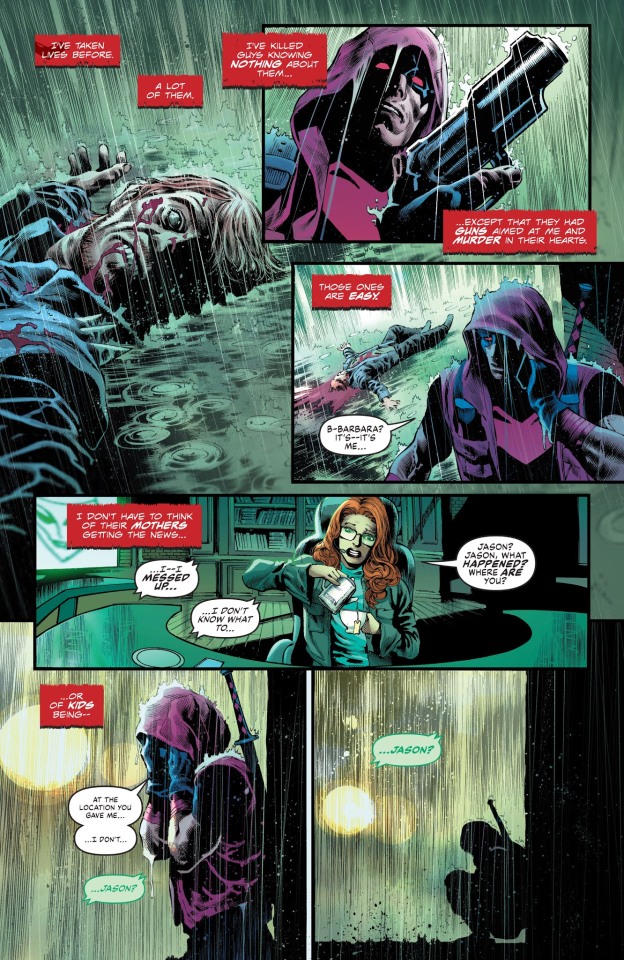
(Oh here's a little aside because it had to be said, Jason would not have been a good father or a good mentor to Tyler and absolutely should not have been his new Robin. Jason is a man who is in his early 20's (not saying men in their early 20's can't be good fathers at all) who is a brutal serial killer using the guise of a vigilante anti-hero to let him escape most of the law. the complications of having the man who murdered your father adopt you and make you his sidekick are way too numerous for me to explain in a long-winded already heavy Tumblr essay post. There's a reason why we don't advocate for a story where Joe Chill adopted Bruce Wayne or one where Tony Zucco took in Dick Grayson.)
The next biggest argument is that they feel that Jason is giving up his guns as a means to just be invited back into the Bat-Family. To which I will tell anyone who has that argument to go actually read Urban Legends. Already have and still have that argument? Please re-read it. Don't want to? That's okay, I will paste the images from the comic where Jason specifically says that he doesn't want to give up his weapons for Bruce and his real reasoning down below since the comic isn't exactly readily accessible.
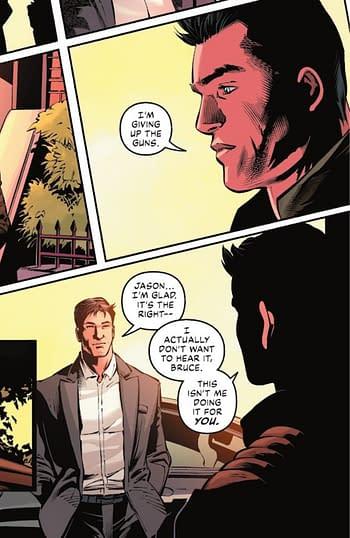
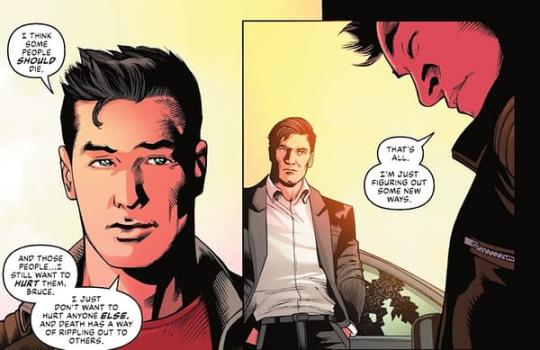
Jason gave up the guns because he felt the gravity of what he had done and knows how it'll effect Tyler. Thankfully his mom is alive and in recovery. But Tyler doesn't have a father anymore. And Jason killed Tyler's father. It may have been in accordance to Jason's philosophy, but it was a case where it blurred the lines. Jason Todd isn't a black and white character, just very dark gray. He doesn't kill aimlessly like the Joker. If you are on Jason's list you probably have done something pretty horrific, and also just in general, being in his way or being a threat to him. Mind you, in early days of Red Hood and the Outlaws (Image below) Jason almost killed 10 innocent civilians in a town in Colorado all because they saw him kill a monster. That being said, Jason isn't aimless in his kills.
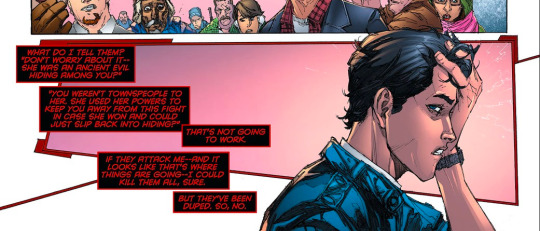
(Also can we just take a moment to appreciate Kenneth Rocafort's art? DC Comics said we need to rehabilitate Jason Todd's image and Kenneth Rocafort said hold my beer: It's so SO GOOD)
That being said, the key emphasis in the story of Cheer asides from trying to introduce Jason Todd back into the Bat Family and give an actual purpose for him being there, other than him just kind of being there ala Bowser every time he shows up for Go Kart racing, Tennis, Golf, Soccer, and the Olympic games when Mario invites him, is that Jason and Bruce ultimately both want the same thing. Jason wants to be welcomed back into the family and to be loved and appreciated. Bruce want's Jason back as his son and wants to love and protect Jason. Both of these visions are shown in the last chapter of Cheer while under the effect of the Cheer Gas. It's ultimately this love and appreciation they both have for each other that helps them overcome their challenge and win.
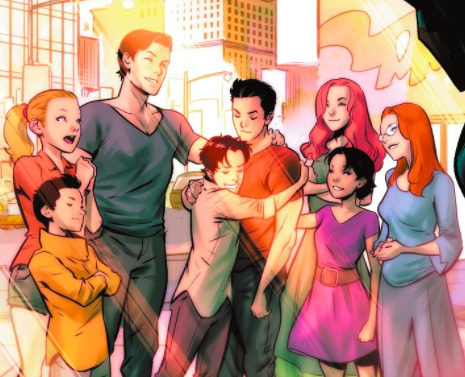

Jason Todd is a character who, just like Bruce, has been through so much pain and so much hate in his life. The two are meant to parallel each other. While Bruce chose to see the best in everyone, giving every rogue in his gallery the option to be helped and give them a second chance, hence why he never kills, Jason has a similar view on wanting to protect the public, but he understands that some crimes are so heinous they cannot be forgiven, or that some habitual criminals are due to stay habitual criminals, and need to be put down. But at the end of the day, the two of them both try to protect people in their own ways.
I am aware that through the writings of various DC Comics authors such as Scott Lobdell and Judd Winick, the two have had a very tumultuous relationship. And rightfully so, I am by no means saying that Scott Lobdell writing an arc where Bruce literally beats Jason to within an inch of his life in Red Hood and the Outlaws, nor Judd Winick's interpretation of Under the Red Hood where Bruce throws the Batarang at Jason's neck, slicing his throat and leaving him ambiguously for dead at the end of the comic is appropriate considering DC Comics seems to be trying everything they can to integrate Jason back into the family. That being said, a lot of these writings have shaped the narrative of Jason and Bruce's relationship and have an integral effect on the way the fandom views the two. It doesn't help that Zdarsky acknowledged Lobdell's life-beating of Jason by Bruce at the very end of Cheer by having Bruce give Jason his old outfit back as a means of mending the fence between the two of them. That does complicate a lot of things in terms of how they are viewed by the fandom and helps to cause an even greater divide between the two.
Regardless, I want to emphasize the fact that Jason Todd is a part of the family of his own accord. Yes, he's quite snarky and deadpan in almost every encounter. However, Jason is absolutely a part of the family and has been for a while of his own will. There's a great moment in Detective Comics that emphasizes this. Jason cares about his family because it is his found family. Yes, they may be warry about him and use him as a punching back and/or heckle him. At the end of the day, we're debating the family dynamics of a fictional playboy billionaire vigilante whose kleptomania took the form of adopting troubled children and turning them into vigilante heroes. Jason Todd wants a family that will love and support him. This is a key definition of his character at its most basic. This was proven during the events of Cheer and is being reenforced by DC Comics every time they get the opportunity to do so.

Now, none of this is to say that I hate Judd Winick. I do not, I don't like the fact that in all of his writings of Jason, he just writes him as a dangerous psychopath, and Winick himself admits to seeing Jason as nothing much more than a psychopath. Yet Winick is the one who the majority of the fandom clings to as the one true good writer of Jason Todd because 'Jason was competent, dangerous, smart' Listen, friends, Jason is all of that and I will never deny it. However, what I love about Jason isn't that he's dangerously smart of that writers either write him as angsty angry Tumblr sexyman bait or that they write him as an infantile man child with a gun. There's a large contention of this fandom that has an obsession with Jason Todd being this vigilante gunman who is hot and sexy and while I definitely get the appeal. It is very creepy and downright disturbing that all of you hyperfixate on his use of guns and ability to be a murderer. It is creepy and I'm not necessarily here for it.
What I love about Jason Todd is that despite all of the pain, all of the heartache, all of the betrayal, and bullying, and death, and anguish. Jason Todd is one of the most loving and supportive characters in all of DC Comics. Jason has been through so much in his life, but he still chooses to love. He still chooses to see the bright side in people. Yes, he takes a utilitarian approach and chooses to kill certain villains, but at the end of the day he wants to see a better world, and he wants to be loved. It takes so much courage and so much heart to learn to love again after one has been abused or traumatized. I would not blame Jason at all if he said fuck it and just went full solo and vigilante evil. He has every right to, but he still chooses to be with the Bat Family of his own accord. That's something that I see a lot of in myself. I have been through a lot of trauma and yet I try to be a better person myself in any way that I can. It is extremely admirable of Jason to allow love back into his heart when he really doesn't need to. He kills and he protects because he has this love of society. It may have been shaped by anger and hatred, but Jason has found his place amongst people who love him and value him. I think Ducra, from Red Hood and the Outlaws put it best in the image given below.

To end this tangent, I love Jason Todd and all of his sexy dangerousness, but it's far more than that. As much as Jason may be dangerous and snarky, he loves his family without a shadow of a doubt. I look up to Jason Todd because despite all of his pain and all of his trauma, he still choses to love. Jason Todd is a character who is someone I love because despite all of his flaws and having a very toxic fandom, he still serves as a character filled with so much heart and so much passion. I wish more writers would understand that. But for now I will live with what I have. Even though the fandom may be vocal about it's hatred for his characterization, I choose to love Jason regardless because he is a character who chooses love and acceptance regardless of his pain. Jason Todd is by no means a good person in any sense of the word. He has easily killed upwards of 100 people by now. He is a character who is flawed and complex but ultimately is one who powers forwards and finds love and heart in a place from so much pain and anguish. That is what I love about Jason Todd. After all, to quote a famous undead robot superhero, "What is grief, if not love persevering?" Jason Todd chooses to love despite all of the trauma and pain and grief. Yes, he is hardened in his exterior, but inside there is a man with a lot of love to give and someone who deserves the world in my eyes.
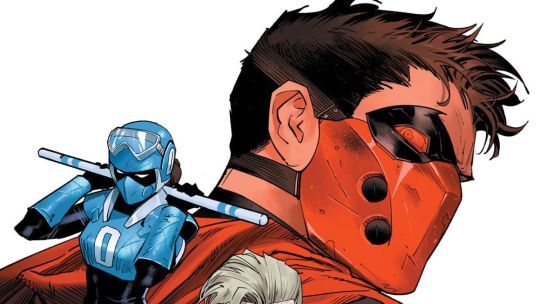
#Long post GOD#Jason Todd#Red Hood#Bat Family#Batman#red hood and the outlaws#RHATO#RH:O#Batman Urban Legends#Red Hood Lost Days#TW Voltron#TW Death#tw murder#TW Klance#Gotta love how i am pouring my heart out onto jason AND calling out the Voltron fandom#Regardless love Jason Todd people
145 notes
·
View notes
Photo

WHO: Batman and Joker WHERE: A hangar near the outskirts of the city WHEN: During the Puppet Theatre performance
Batman: Arranging Harley’s transportation out of Star City was a remarkably detailed plan that Bruce took significant time to put together, with only Jim Gordon’s assistance. It was something he kept entirely to himself, it was better that way, and there was no reason to involve anyone else in what should be a simple relocation. He’d waited as long as possible, providing the best care he could, under the circumstances, but Harley needed treatment. That was made abundantly clear in the weeks that followed her head injury. Her entire personality had changed and she seemed remorseful for her past actions, but he couldn’t be the one to diagnose whether or not her “return” was genuine. Regardless, he didn’t trust it to last if she were to be reunited with Joker. Her previous rehabilitation hadn’t lasted, in retrospect Bruce couldn’t say it was ever genuine, so this newfound repentance didn’t inspire a lot of confidence.
It wasn’t his decision to make. He couldn’t keep her locked up forever. It was important that she face justice for her crimes, or - ultimately - to be treated for the mental state that made her not responsible for them. He waited, much longer than he preferred, until the backlash from the carnival and the news of his identity died down significantly. If he wanted to prevent Harley from falling back into Joker’s hands, then he had to wait until he was too distracted to prioritize getting her back. He didn’t want to be lulled into a false sense of security.
Gordon’s injury also gave him more incentive to plan. It gave Jim a task while he was bedridden and recovering. It helped that he still had connections inside Arkham Asylum and could arrange for Harley to be received by a trusted contact. For his part, Bruce only had to swiftly and secretly take her from the compound to the harrier jet. It was a small window of time that still contained a lot of variables; for that reason, he was tense in handling Harley even though she’d been properly sedated and didn’t seem to have any understanding of what was happening.
Simply because he didn’t trust the situation or the possible pitfalls involved, he wore the cowl so he had access to every tool at his disposal. He had just gotten her settled and secured in the back of the jet when he heard chaos erupt over his comm.
Joker: In their long and storied history, he’d rarely had such an extended separation from Batman. It had been so long since they’d danced that he wondered if Batsy had forgotten the steps. Had he missed it? Was he bored? He’d let him keep Harley as a memento and even sent him a token of affection weeks earlier, but he hadn’t even cared enough to find him properly! The anticipation of their reunion had been building for so long that Joker was positively bursting with excitement. It was going to be a real show stopper of a night. Besides, he’d had Harley for long enough, and he was weary of having only empty headed henchmen and Peanuts to work with.
The plans he’d laid were going off without a hitch. He’d throw ol’ Chuck a bone when it was over for putting on a good show and Peyton had come through in a big enough way to keep all the other capes and crusaders occupied so he could get to the real final act. All that remained was the big moment! The climax! The long awaited reunion!
After he’d stolen the stage at the theatre and captivated the audience, Joker had pulled off his first trick of the night. He’d had Peanuts waiting in the wings and swapped places with him. Chuck manned the puppets with a little help from a recording of Joker reading the ‘script’ and he had no doubt that, just as he was watching Batsy load his girl up into that plane, all the other little bats and birdies were surrounding that theatre thinking they were going to win a prize. His only regret was not being able to see the looks on their faces when they got Kiteman instead.
Once that was done, it was only a matter of getting to the hangar. With the whole city in a frenzy, he had no trouble finding his mark. From just enough distance to avoid burning off a few hairs, he started his grand finale with a bang. At the push of a button, the entire front end of the plane blew sky high. Joker watched with a look of pure, unadulterated glee as a chunk of flaming metal launched into the air.
Batman: The first thing he heard was the sound of metal cracking, a sound that happened seconds before the actual explosion, but Bruce still had enough time to create enough distance. He covered Harley, using the material of his cape to cover her completely so she wouldn’t be struck by shrapnel or shattering glass. Once it settled and the fire burned, he picked her up and swiftly took her from the aircraft. Through the comm he could hear the insanity that apparently took over the city in the short time since he’d left the manor. He knew before seeing him that Joker was responsible for it all. That meant he had figured out the plan somehow - impossible - or he’d had eyes on the entrance and exit to the compound where he’d been keeping Harley. Bruce knew how impenetrable it was because he’d made it that way.
The Batmobile was parked outside the hanger. Transporting her was out of the question now. He’d have to take her back. He closed the distance carefully, tense, and knew he couldn’t count on Joker not to make another move just because he had Harley in his arms. That never stopped him before. “She isn’t much use to you this way, Joker,” he said gravely, his expression grim yet calm in spite of the fiery plane behind him. “She needs medical attention.”
Joker: “That’s no way to greet an old friend. Haven’t you missed me? It’s been so long!” It was impossible to tell at first where Joker’s voice was coming from. He’d picked up a trick and threw his voice, just to see if he could cause a moment of confusion. He wanted to see those two pointy ears look around for him. “I even sent you a present and topped him with a little bow! But I think one of the other birdies got to him first. Rude. It wasn’t for him.”
Joker stepped out from the shadows, illuminated by the fiery wreck of a plane behind him. “Oh, this is bringing back memories, Batsy!” He clasped his hands in front of his chest and swooned before setting his gaze on Bruce with a wicked grin stretching his mouth. “Now why don’t you put my dolly down so we can play?”
Batman: Capturing Joker would have been his priority in any other case, but Bruce knew he couldn’t afford to be sidetracked. Instead of following the sound of his disembodied voice he took notice of anywhere he could be hiding and his proximity to each. When he finally stepped out, he faced him with a fixed frown. Bringing up Damian was meant to get under his skin and it did, but the effect was barely noticeable aside from a tightening in his jaw. He wouldn’t give him the satisfaction.
He stepped back and the door to the Batmobile opened; Bruce set Harley inside carefully, without once putting his back to Joker. The smart thing to do would be to withdraw from the fight after being ambushed, his plans were thrown to the wind, but he couldn’t just let the clown go. “If this is what you want, you won’t get it by going after them. I’ll make sure of that.”
Joker: “Oh, but I already have it! Going after them is just a bonus. And since you’re heeeere, you don’t even know about my other show. They do, though. Your birdies and bats are the stars!” Joker took one long step to the side and spread his hands. “I’d hate to have them feeling left out. Uncle Joker doesn’t show favoritism.”
He gave one quick glance to the Batmobile and saw Harley’s still body inside. The Bat had done him a favor by knocking her out. It made moving her easier. Without further adieu, Joker gave a loud, sharp whistle into the air and laughed. “Bud and Lou, it’s time to take Momma home!”
There was a loud snarl in the shadows before both hyenas leapt toward the Batmobile. Joker gave it half a second before launching the two smoke bombs he’d concealed in each sleeve. The animals could find Harley by smell and Joker had spent far too long showing them where to drag her. He’d wasted a lot of perfectly good meat to do it, too. She’d better appreciate his clever rescue plan when he told her all about it.
“You know what they say about taking toys without permission! Didn’t your parents teach you any manners?” Joker’s shriek of laughter cut though the smoke and darkness.
Batman: Bruce knew Joker well enough to know the importance of being prepared. It took seconds for him to realize he didn’t need a rebreather; the bombs were smoke bombs, not toxic gas or anything that was going to risk unconsciousness. The only purpose was to disorient him. He immediately backed up to the Batmobile to shield Harley, his posture stiff and at the ready for Joker’s inevitable assault.
What he didn’t expect were hyenas. Before he had time to react, one was latched onto his arm. The armor was too thick for him to feel it, but the weight of the second hyena threw him off balance. Bruce seized the hyena’s jaw, his grip tight, and if his gloves were made of thinner material his fingers would already be shredded. He forced the hyena to release its grip and spun his cape to catch its head, trapping it before it could bite him again. The smoke was already clearing.
By then, the other hyena was gone - and so was Harley.
Joker: Through the smoke, Joker could tell where all the commotion was happening and stood his ground. As the hyenas did their work, he reached into the impossibly deep pocket of his jacket to pull out a long-barreled revolver. He’d had it personalized and engraved with a gold letter J in swirling script. It was a real beauty, and her first round of the season couldn’t go to a luckier guy!
“It’s been fun seeing you again! Let’s not wait so long before our next get together! I’m beginning to think you don’t like me anymore.” As soon as he saw the outline of that pointy eared figure, Joker took his shot right at the bat symbol. Of course the bullet wouldn’t kill him. He knew better than that. But it would hurt and the deep bruise it left behind would be such a lovely token of his affection.
Batman: When he heard the gun go off, Bruce jerked back, turning his body, but it wasn’t enough to avoid the impact of the bullet completely. It grazed his chest, barely making a mark in the thick plate, but the force would still leave a bruise.
He flipped the cape off the hyena, but by the time he had the grapple gun aimed according to the trajectory of the bullet, there wasn’t anyone there.
Joker had managed to vanish completely from the hanger
7 notes
·
View notes
Text
Telltale Batman - An Epilogue
John is rehabilitated and released into Bruce’s care. They live at Wayne Manor, and fight crime together, though John is relegated to the Batcave. He loves being Bruce’s guy in the chair, and only ever returns to the field when his buddy is in dire need.
It takes a week before Bruce breaks down and calls Alfred. Al knows he shouldn’t pick up the phone, but does it anyways. The two talk for a long, long time, and make up as the sun rises in Gotham. Alfred never returns to work for Bruce, but he visits at least once every other month, and calls as often as possible. Bruce never lets the phone go unanswered.
Bruce and Selina continue their relationship, but never marry. They aren’t the type for it. Selina makes good use of her cleared record and gives up her life of crime. She works as Batman’s partner full-time, untilthey both retire.
Avesta takes the job at Wayne Enterprises and dives into it headfirst. She’s the company’s best employee, and everyone knows it. When a new super villain comes to town, A seat is sure to do research and drum up a psychological profile before Bruce can even ask. When Regina retires, Avesta is quickly elected to take her place on the board.
Harvey is eventually released from Arkham, and becomes a defense lawyer for criminals seeking rehabilitation. It takes months for him to approach Bruce and Selina, fearing that they’ll reject him and cause a relapse. He’s pleasantly surprised when they both accept him with open arms. He’s never re-elected as DA or mayor, but he has his friends, and he’s making a difference. He’s happy.
Gordon is reinstated as Commissioner, and makes good use of the second chance. He uses every ounce of guilt to clean up Gotham and usher in a new age of peace and prosperity, side by side with Batman. On the day Gordon officially retires, Batman takes his mask off, and the two share a well-earned drink.
Waller and Tiffany, though they’d never admit it, are inspired by Batman. Waller never truly changes her ways, but she makes an honest effort to be better than she was. Tiffany uses the memory of Bruce, Batman, and her father to be an upstanding and moral agent. Waller, perhaps seeing a bit of Bruce in her, gives Tiffany a slew of promotions. Years later, when Waller leans on a cane and is old enough to swallow her pride, she retires and hands the title of Director to Tiffany. Ms. Fox uses her resources to contact Batman, and tell him that should he need it, the new, morally righteous Agency will always be there to help.
Mr. Freeze finds Nora, and hides away from the world while he tries to fix her. One night, he’s found by Batman, and the two fight. When Batman wins, Freeze pleads with him to let him cure Nora before taking him away. Batman agrees, so long as Victor works morally, and turns himself in afterwards. The two work together, and eventually cure Nora. Batman gives the two a day together, before bringing a willing Victor to Blackgate.
Oswald sadly never gives up his crusade against Bruce Wayne. He breaks out and Batman stops him time and again, none of his schemes reaching the heights of Lady Arkham’s. Bruce tries to visit his old friend in Blackgate, but Oswald refuses to see him. He dies cold, bitter, and alone, in a prison hospital bed.
Years go by, and Bruce begins to open up Wayne Manor and the Batcave. Young crime fighters start appearing on the streets, untrained and in makeshift costumes. Not wanting to see the Joker’s crimes repeated, Bruce takes them under his wing, one by one. The cave becomes home for Nightwing, Batgirl, Red Hood, Spoiler, Huntress, Azrael, and many, many Robins.
Bruce grows old and weary, too broken to continue, and hangs up the cowl. Nightwing takes it, thinking Batman too important a symbol to die. John cries, and bakes a terrible cake that everyone pretends to enjoy for the retirement party. Selina retires not long after, though John stays on, working from the Batcave. Bruce looks at the family he’s built, and thinks of Alfred. He thinks of how proud he’d be, and let’s himself smile. Gotham was in good hands.
#batman#john doe#telltale#telltale batman#headcanon#RIP telltale#penguin#two-face#mr freeze#joker#catwoman#good bye old friend
19 notes
·
View notes
Text
Wonder Woman: on female characters in comics PART 2
part 1, 2, 3
Please bear in mind that English is not my first language!
Part 2: Useless pretty, sexy bad and second-hand skirts
Summary: A classification of female characters in comics.
Before we get going, an important note: this is not character bashing. I may sound extremely critical and snide at times, but it doesn’t mean that I hate these comics or these characters or even these authors! Batman, for instance, is my absolute favorite fictional character. I also have the biggest soft spot for Harley Quinn and Lois Lane. However, it doesn’t mean that it gives them a free pass. Quite the opposite, in fact.
Text under the cut.
In the previous chapter, we’ve touched on ‘fridging’ and why it’s not cool (ha-ha see what I did here). Due to particular conditions, women were pretty much absent from the picture and therefore, could not influence how women were portrayed for a while. Male visualization of women turned out to be quite… limited. Reading comics, I have noted that female characters in the comic books can generally be divided into four categories. There are, of course, some exceptions, but the percentage is far too small. As I thought about these categories, I’ve realized that three out of four are constructed though the sexism of the superhero narratives, while the last one is in a constant struggle against it. There are damsels in distress, femme fatale, gendered spin-offs and the female superheroes. Some characters fluctuate from one category to another, or fit into more than one. Let’s talk a bit more about the first three, so it’ll become clearer, why the female superheroes are so important for representation of women.
The first category is the damsel in distress: the mother or the aunt, the girlfriend, most often powerless.
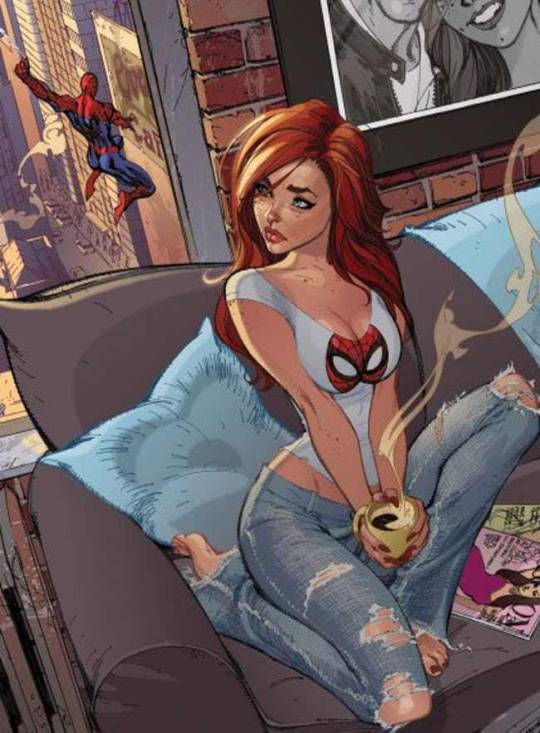
It includes such characters as Lois Lane, Vicky Vale and Iris West. Interestingly, all three of them are journalists, which arguably justifies their rash behaviour, which often lands them in trouble. They are nice, generally understanding, but quite often annoying, as they manage to land themselves in trouble yet again. It’s like they don’t understand that they should just sit down, because they either land in villain’s hands or they pressure the hero to quit heroing. With time, they have become snarky and easy-going, and obviously able to take care of themselves (until they aren’t) but the truth is, they are indistinguishable. They are cut out from the same piece of cardboard, as precious time for character development cannot be wasted on them, and they serve as conscience, motivation and ‘someone to come home to’. They are the classic ‘women in the refrigerators’ (Simone, 1999) and their interests and plot arcs rarely transcend the love interest, or in case of Iris and Aunt May, the relative of a superhero.
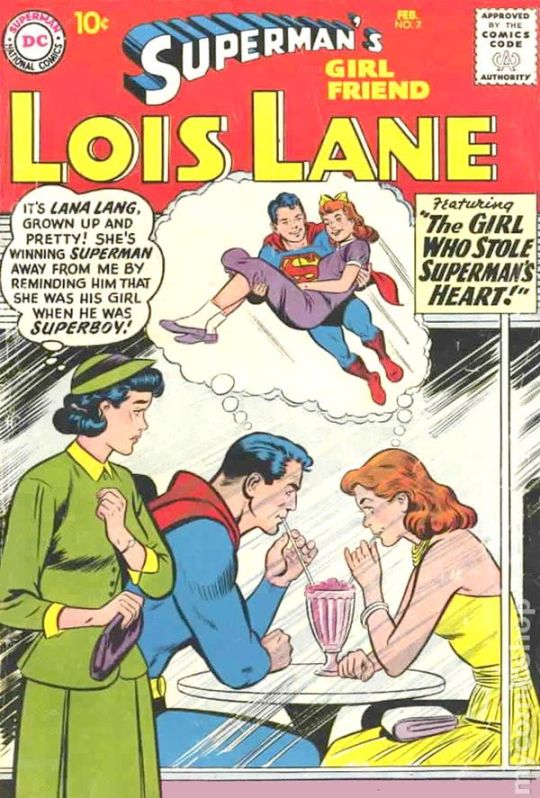
Probably the most notable example will be the Injustice franchise, where Superman becomes a tyrannical dictator, stricken with grief after the death of Lois, who has also been pregnant with his child at the time (Injustice: Gods Among US [I] #1, 2013)*. The comic series depicts the extent of Superman’s psychological trauma, as he is deceived by the villain into killing Lois with his own hands, thus, focusing not on the tragedy itself, but solely on Superman’s reaction to it. By the end of the series, the reader still has no idea, what kind of person was Lois. She is not important, what is important is that now the superheroes have an excuse to fight each other. Nobody in the comics really mentions her. The only time someone does, it is to reprimand Superman for his actions, all while Superman plans kidnapping Lois from another dimension because she’s just replaceable. Of course, this isn’t a story about Lois, but if a main heroine of Superman family cannot get a decent dealing, what’s there to hope for, for a lesser female character? We do not see her family or friends. She doesn’t really have a life outside her husband and it is precisely her connection to Superman that gets her in trouble. I might be picky, but having a joint surname (Lane-Kent, West-Allen, Watson-Parker) isn’t enough of a feminist statement for me.
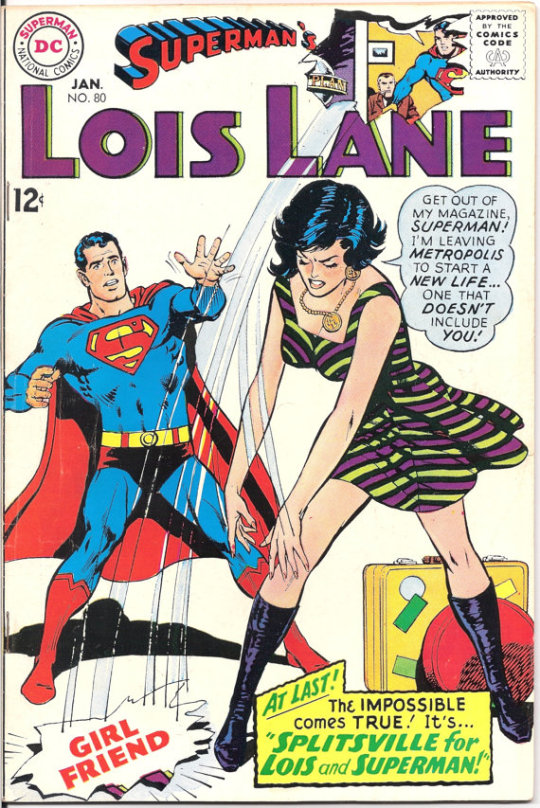
The second category is the femme fatale or a seductive villainess, such as Talia al Ghul, Poison Ivy and Catwoman.
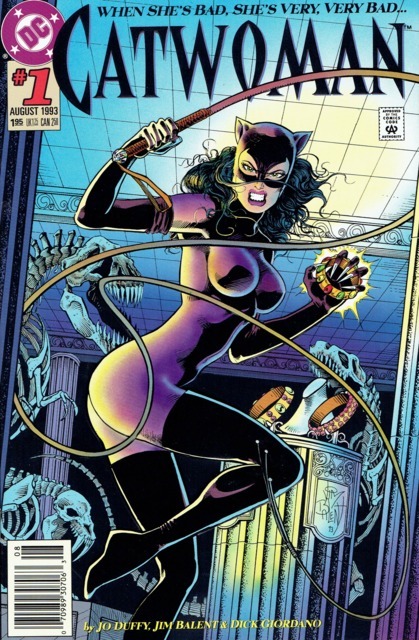
Most often, she is attracted to the superhero and tries to sway him of his righteous pass with her female charm, while he treats her as a lesser threat than male villains, because he believes she can be ‘good’ again. If she rejects the ‘good side’, she gets further from humanity and, thus, loses her chance for sympathy, absolution and happiness. Seductive villainesses often find themselves in a situation where they have to resort to their sexuality to distract their opponents or to persuade men to work with them. They are reduced to sexual objects for the male characters and by extension for the spectator, meaning the reader of the comics (Mulvey, 1975: 62).
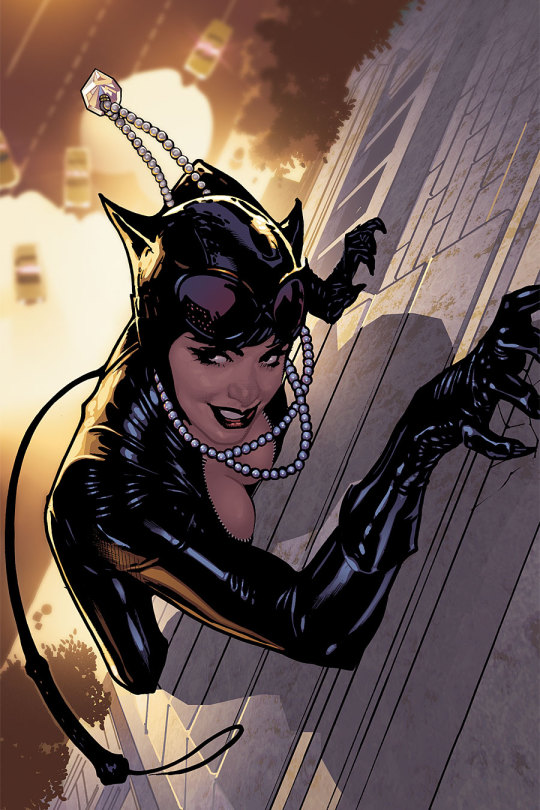
They perform the role of the seductresses, trying to lure the hero from the path of righteousness and virtue. While being positioned as the erotic object, they are at the same time completely dehumanized. Talia turns from a villainess in love, who cannot decide on her loyalties, into a full-fledged assassin, and she is portrayed as a cold-blooded maniac, who drugs and rapes Batman, brainwashes him, clones their son and kills him (Robin: Son of Batman, 2015). In Harley’s absence, Poison Ivy does not value a human life at all, manipulates people and is more plant-like than human (Austin, 2015: 294).
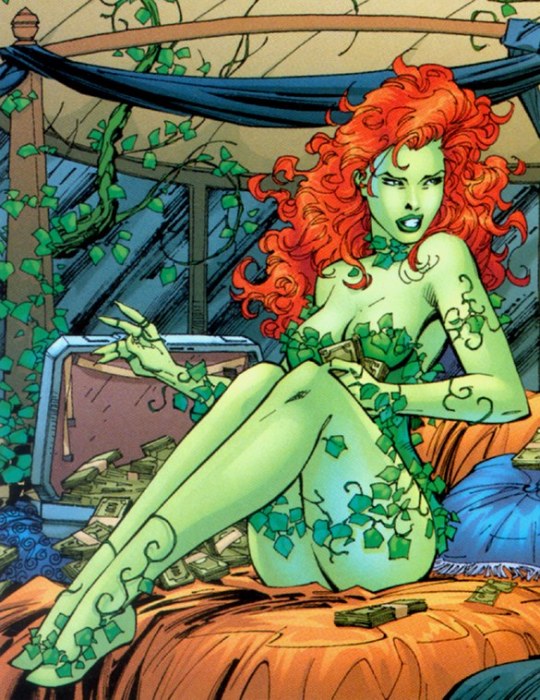
The relationship between female empowerment and male disempowerment can be described as dichotomous. There is a prevailing narrative that a woman with power is a threat (Austin, 2015: 286). She defies male dominance and dares to enforce her own rules and focus on her own desires. The man tries to regain control over the dangerous woman. (Mulvey, 1975: 67) Notice how generally these women have a good cause at heart: Talia’s aim is to preserve the planet from disastrous actions of human kind; similar to Poison Ivy, who is concerned with flora; Catwoman protects felines and girls and women of lower classes and is essentially a version of Robin Hood. Harley Quinn has a mental illness, and copes with it by adopting animals and looking after them. Killer Frost is a heat-vampire and when she finds a cure (Firestorm) she pretty much stops attacking people, because she was doing it only to survive. Another interesting observation: it is their connection to men that pushed them to extremism. Talia is manipulated by her dad (who assures her of his love for her to save him on numerous occasions, but in the end kills her and uses her body to store his consciousness (BTAS)). Pamela Isley is nearly murdered by her male colleague. Selina is sexually abused by men. Killer Frost is locked up in a working reactor. I would assume everyone knows what’s the deal with Harley. Most often it contrasts with the actions of the hero: he tries to help her, make her normal again, fix her. This perpetuates a stereotype of how women are wrong about their prejudice against men, because ‘not all men are like this’. What is also inevitably and unknowingly created is that these women do not need fixing, it would change them at core. They aren’t even evil, as much as they would only help a cause if they believed in it. Even if they try to change for a man, they relapse: but through relationships with women, they are healed and they are able to embrace their power and be good, be evil, be something in the middle – and being true to themselves at the same time.
Obviously, I am going to talk more about Harley Quinn. In the case of Harley Quinn, Joker physically and psychologically abuses her, manipulates her, makes her lose her job and her degree, drives her mad and so on. When she exercises her agency and comes close to killing Batman, successfully trapping him – something Joker himself had not succeed in – he angrily sets the boundaries between himself and Batman, their relationship, and Harley, who must only follow orders (Mad Love #8-72, 2009). Man games are one thing, and woman must never intrude! Harley learns it the hard way – it costs her almost every bone in her body. Joker ‘owns’ Harley and when she leaves him, he is livid and immediately sets to return her into his possession (Gotham City Sirens #10-26, 2011), exemplifying how Joker is unable to accept Harley’s existence beyond him (Austin, 2015: 285). On the other hand, Batman tries to establish his authority over her by bringing her to justice and rehabilitating her. He perceives her as a victim and someone, who despite being as dangerous and cunning as Joker (Mad Love #8, 2009), still needs saving. Harley is caught between two men, and while Batman is genuine in his desire to get her away from Joker (plus he doesn’t have romantic feelings towards her), it’s a no-win situation for Harley, because she can’t break away from her dependence issues. Enter Poison Ivy. By making Harley immune to all toxins, she both makes Harley stronger and cancels her main advantage over her. Poison Ivy doesn’t see Harley as a sidekick or a child who doesn’t know any better – she makes it possible for Harley to keep up with her. It also transforms Poison Ivy’s character. From then on, writers have abandoned the trope of Poison Ivy’s occasional boring crush on Batman.
The third category is the ‘spin-off franchise baggage’ (Scott, 2013). It is quite easy to spot this type of characters, as their names are literally the derivative of their male (the original) counterpart: Batgirl, Supergirl and She-Hulk.
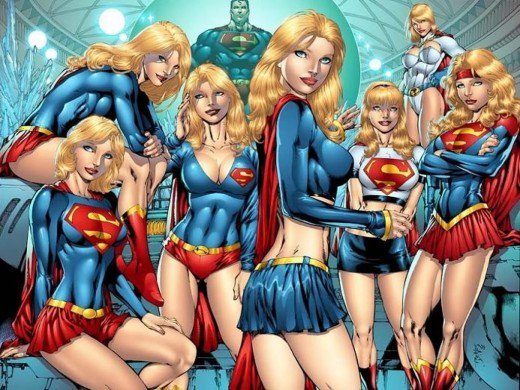
She does not have a sound or at least unique backstory, she is essentially the female version of the character, but secondary to him: weaker, less interesting, less popular and less developed (Fretheim, 2017: 32-33). Supergirl is another survivor of Krypton; She-Hulk was created literally by blood transfusion from Bruce Banner to his cousin, Jennifer Walters (they wanted to give her his rib, but it sounded vaguely familiar for some reason).
Sometimes such a character can break out of the limited space, provided by the legacy of the common root of the aliases (Bat-family, Super-family), for example, Barbara changes her line of activity after injury and Batgirl becomes Oracle, a character in her own right, giving voice to a readership with disabilities. It is also an example of how ‘fridging’ can be turned into a positive character development. In the Killing Joke, Barbara is harmed only because of her association with Jim Gordon, and the thematic purpose of her injuries is to provide emotional stakes for Batman. Nevertheless, she doesn’t stop being a hero and doesn’t become a liability. She is unique and interesting to read about. However, while it is possible, it is also reversible, as in 2011 Barbara puts on the Batgirl suit once again (Cocca, 2016: 78). Rarely, she can become more popular than the original hero, like Hawkgirl.
In terms of visual representation, it is quite easy to retrace sexual discrimination in the way that the male and female counterparts are portrayed. Although men with super powers do not need muscles to lift cars, they look jacked, a bit too much really. Hulk is positively ugly. Women, on the other hand, cannot let themselves be caught looking a tad less than ready for a Playboy photo-shoot.
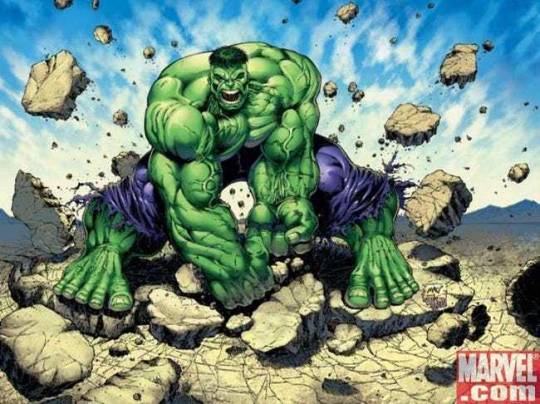
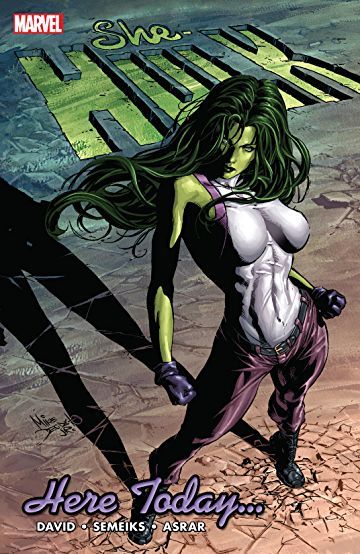
Where male superheroes are embodying the ideal of masculinity, they are fit, muscled, and attractive – they are essentially the asexual subjects, while even their own gender-bent versions are put into suggestive poses and are given revealing outfits and heels (Batman: The Drowned #1, 2017).

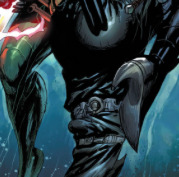
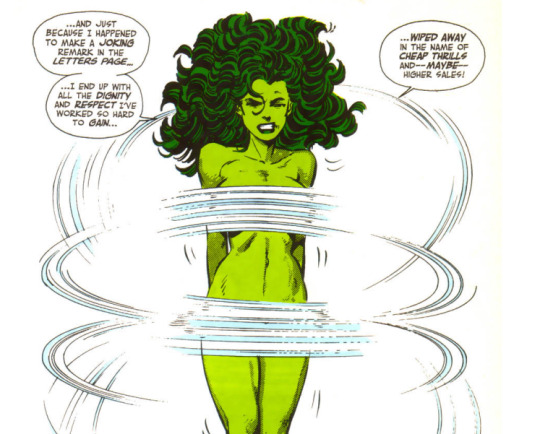
Last but not least, the category of the female superhero. She is created as a distinct character, with her individual backstory and a set of powers. She is Wonder Woman, Starfire, Black Canary.
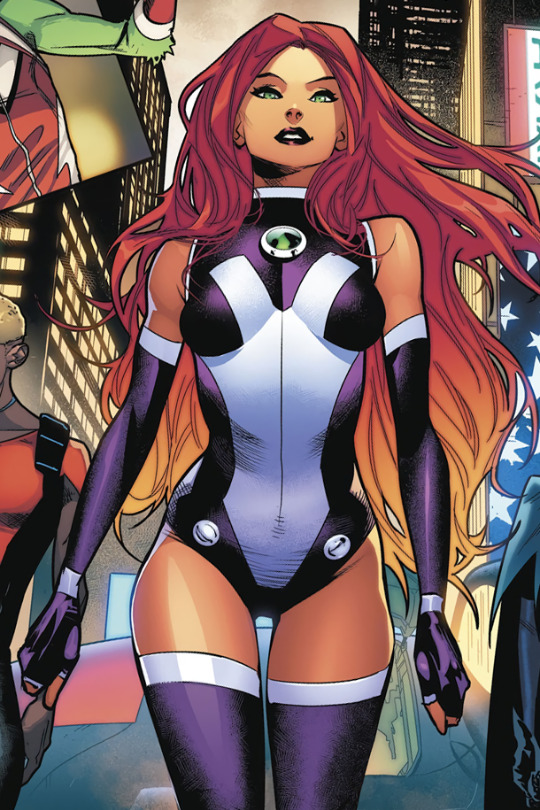
The female superhero has her own backstory and her own set of powers. This doesn’t mean that they’re saved from the male gaze, unfortunately. The image above is one of the most modest costumes of Starfire I have found. This is particularly Starfire’s curse:
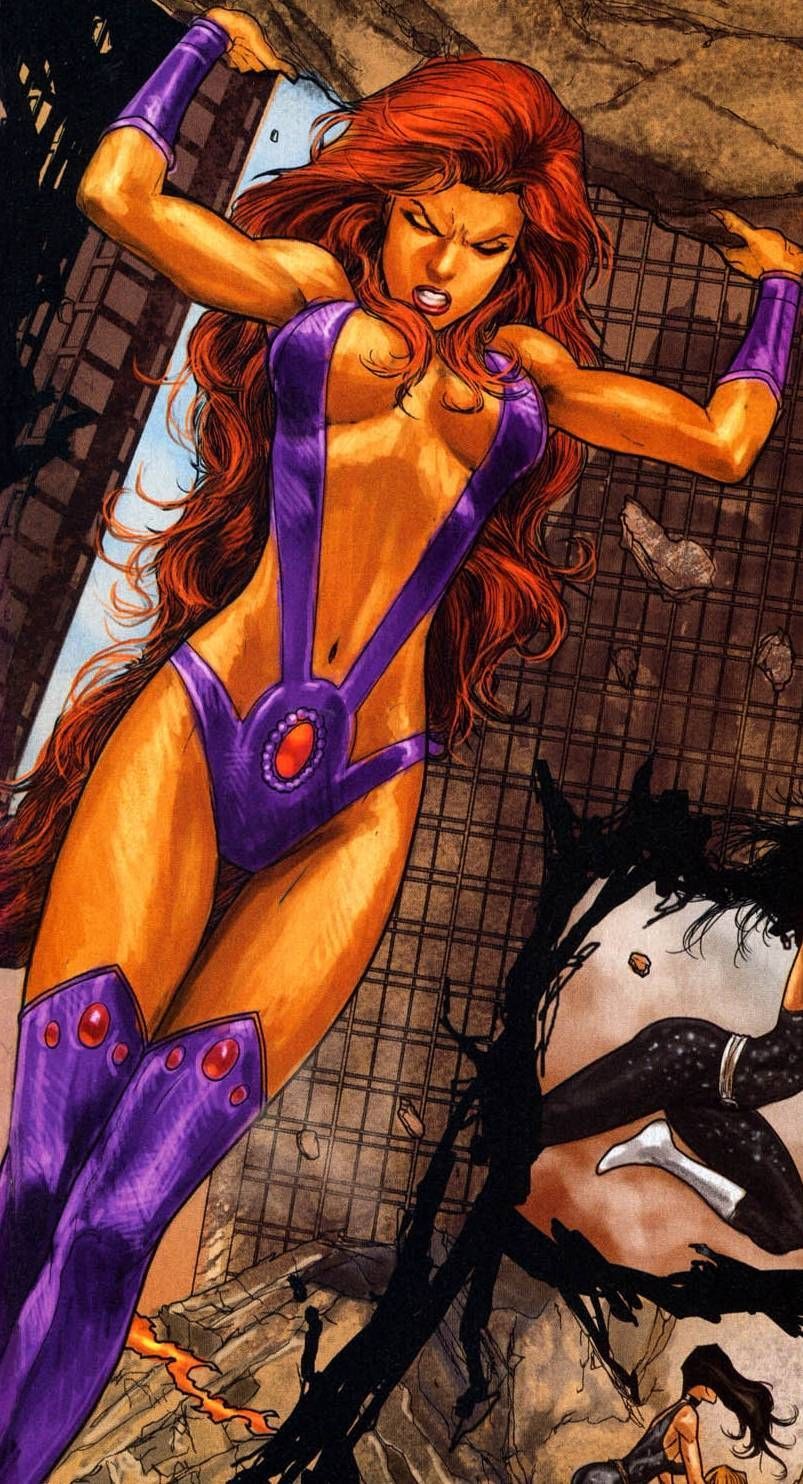
The female superheroes stand seemingly separate from the male superheroes, but men are still the part of the equation. Damsels, seductresses and knockoffs are directly linked to the male superheroes in forms of extensions of the mythos. The female superheroes exist in a state of eternal struggle against the male superheroes, male villains and male readers. According to O’Reilly, the female superheroes are restricted not only by the authorities, but even by their own sex (O’Reilly, 2012).
To understand the mechanism of gender politics within the comics, let’s examine Wonder Woman against the male superheroes, namely Superman and Batman. While deconstructing their dualistic natures, we encounter a paradox of Otherness (Fretheim, 2017: 10-11). Every superhero has a secret identity. This duality attracts the reader, by making him or her identify through resemblance with the superhero’s disguise as the everyman or everywoman. The comic book promotes the idea of inclusivity, participation. It indulges the fantasy, providing the impression of the activist participation. (Pitkethly, 2012: 216) Superhero defeats the villain and saves America, and the reader feels like he or she has contributed to the victory of ‘truth, justice and the American Way’. It is no coincidence that the popularity of superhero comics correlates to the periods of the high and low threat (Peterson, Gerstein, 2005: 887). In times of the high threat, such as the Second World War, there is a significant increase in interest for ‘powerful’ and ‘tough’ fictional protagonists (889).
Superman is also a meek reporter Clark Kent. Bruce Wayne is also a caped crusader Batman. As a superhero, Wonder Woman, too, exists as a heroic person and an alter ego of an ordinary woman, Diana Prince. Her otherness is expressed through being an Amazon, a super-powered being and a half-goddess. However, as a woman, she is also forced into position of the Other to Superman and Batman (De Beauvoir, 1949). If you’re unfamiliar with De Beauvoir, she referred to the socially constructed concepts of women and femininity in her Second Sex, written a year after women got the right to vote in France. The standards of the so-called femininity were established by patriarchal society and every woman was obliged to live up to these standards. De Beauvoir described the cultural symbols and social pressures put on girls from the very young age. Girls were taught to be passive and submissive, she did not have a choice as she was defined by the male dominated world to be a mother, a grandmother, a housewife. Men were the one, the neutral, the common, while women were the Other. While a man was the creator and the subject, a woman was an object in his power and always secondary to him. She also talked about the social taboos such as menstruation, criticizing pseudo-science that invented the idea of the biological inferiority of women. Menstruation was not the topic to talk about in public, since the very ancient times girls and women were locked in their houses during the periods. The female body is regarded as the Strange, Different, the Other. There is a cult of appearance; the women learn how to manipulate people with their looks. There are certain norms of how a real woman should look. The praises of female virginity and restrictions of the expose of the female sexuality were listed among the other ways in which the male society discriminated the female accumulation. Wonder Woman is, therefore, pitted as the Other to the male superheroes, while being alienated from other women.
So we can see that no category of the female characters in comics are any better than another or have it any easier than another. Nonetheless, the figure of the female superhero is important, because it is a definite step away and open resistance to being background or second-hand. Girls couldn’t relate much to Lois, because, honestly, they were not supposed to – she was not their fantasy, she was male fantasy. There were some female superheroes prior to Wonder Woman, but yet again, they were created by men for men, and girls didn’t want anything to do with them. Industry naturally assumed that the reason is girls being generally uninterested in comics. As Dr. Marston noted, ‘not even girls want to be girls’ (Lepore, 2016: 187). He set to change that, and hence Wonder Woman was born.
*it needs another note: Injustice series is actually one of my favourite comic runs ever, and it has great female characters and great character development and is simply amazing. But it’s based of a game, and they had to work with the game premise, and they did a fantastic job doing it. Still, as I love it dearly, I’m allowed to critique it and so I will.
**despite the name, Superman’s Girlfriend Lois Lane is a wild and fun comic.
Bibliography
Simone, G. (1999). Women in Refrigerators, available at: http://www.lby3.com/wir/
Austin, S. (2015). Batman's female foes: The gender war in Gotham City. Journal of Popular Culture, 48(2), 285-295.
Mulvey, L. 1999. ‘Visual Pleasure and Narrative Cinema.’ In Film Theory and Criticism: Introductory Readings, edited by Leo Braudy and Marshall Cohen, 833–44. New York: Oxford University Press.
Scott, S. (2013). Fangirls in refrigerators: The politics of (in)visibility in comic book culture. Transformative Works and Cultures, vol. 13
Fretheim, I. M. (2017) Fantastic Feminism: Female Characters in Superhero Comic Books. Trykk: Reprosentralen, Universitetet i Oslo
Cocca, C. (2014). Negotiating the Third Wave of Feminism in "Wonder Woman". PS: Political Science and Politics, 47(1), 98-103.
Cocca, C. (2016). Superwomen: gender, power, and representation.
O’Reilly, J. D. (2005). The Wonder Woman Precedent: Female (Super)Heroism On
Trial. Journal of American Culture 28.3: 273–83.
De Beauvoir, S. (1949). The Second Sex. New York: Vintage Books
Pitkethly, C. (2011). The pursuit of identity in the face of paradox: Indeterminacy, structure and repetition in Superman, Batman and Wonder Woman. Journal of Graphic Novels and Comics, 1-7.
Peterson, B., & Gerstein, E. (2005). Fighting and Flying: Archival Analysis of Threat, Authoritarianism, and the North American Comic Book. Political Psychology, 26(6), 887-904.
Lepore, Jill. (2015). The Secret History of Wonder Woman. New York: Knopf.
8 notes
·
View notes
Text
Functionality #2
Dick is beyond frustrated. After spending all morning waiting around and hearing every excuse in the book, it's become incredibly clear this isn't a problem he's going to be winning with patience. No one at Arkham will talk to him, as ‘Batman’ or ‘Bruce Wayne's son’, and it's becoming increasingly obvious is was, indeed, Bruce's doing.
Tim is- he's not all together wrong but it's not the way he thinks, either. It's not that Bruce doesn't want the help it's just that Arkham was never intended to be ‘rehabilitating’. He doesn't want to fix Arkham, it's not technically broken, but even Bruce will admit- possibly only to Dick- that Arkham got out of his control. He wants help getting it back in order. Dick can't help him do that either if no one will talk to him, Bruce.
Explaining to his siblings that Arkham isn't what they think isn't going to fly over too hot, he can say that right now.
Dick, fortunately, is distracted from this thought by his bad day getting worse. That's Sionis. Under the guise of his shades, Dick urgently makes a scan of the parking lot for his husband, Black Mask. He doesn't see him specifically, but he sees the car that clearly belongs to them and the two Sionis’ are rarely far from each other. For a moment, he hopes they can pass one another without confrontation. Sionis is distracted by his own phone and Dick is obviously doing the same.
But he's not that lucky today.
“Mr. Grayson,” Sionis says. “Good day.” Dick pauses, looks up curiously and tries not to hesitate as Sionis offers his hand. The sort of make up Black Mask makes lingers in his mind. Nonetheless, he shakes and in the process, sticks a bug on the inside of Sionis’ sleeve.
“Hello. Have we- met?” Dick asks slowly.
“I suppose not,” Sionis replies. “I am Li, Roman Sionis’ personal assistant.” Dick glances back at Arkham momentarily before looking back.
“Is that something you should announce?” he asks. Black Mask being sort of a huge, active criminal isn't exactly unknown.
“Why?” Sionis questions, a certain flat edge that he always seems to have. “Sionis is as reputable of a businessman as Mr. Wayne.” Dick isn't sure if this is a scathing remark towards Bruce being not all what he seems or some poor attempt at trying to convince him Black Mask is ‘reputable’. He decides not to answer. Sionis gestures to Arkham. “Shall we walk together?”
“I'm just leaving, actually,” Dick assures. The look Sionis gives him isn't unusual, the kind of look big business men often give him when they don't like something he's done as if they're swearing they're never going to work with Wayne industries again- and then immediately forgetting about it upon the next meeting. On Sionis, however, it's far more intimidating. Maybe that's just because Sionis has already almost killed him once.
“I see,” Sionis says. Without Bruce's suit, Dick would like to think he'd be able to handle Sionis much better in a fight. That being said, he also doesn't think Sionis would have straight try to kill him if he hadn't been wearing a Batsuit.
“It was nice meeting you, Mr. Li-” Dick trails off questioningly.
“Correct,” Sionis replies. Clamy about being married to Black Mask, obviously. “Nice meeting you as well, Mr. Grayson.” Dick heads for the car awaiting him, trying not to seem too hurried, which also does him little good. “Oh, Mr. Grayson.”
Dick stops. He doesn't think the short, mostly one sided fight he had with Sionis was enough to give him away. He moves in such a unique way, it's always a concern someone will notice. Most people don't think he can move the way he does quickly and therefore, people don't often connect his contortionism to Nightwing’s fighting movements. If anyone were to notice, though, it would be someone like Sionis.
“Yes, Mr. Li?” Dick answers easily.
“We should talk business some time,” he says. Dick absolutely isn't doing that. “With your father out of the picture-” Bruce isn't dead. “Perhaps it's time to discuss returning the Sionis brand name to its rightful owner.” But he might be fucking soon if Dick has anything to say about it. Of course Bruce never gave Black Mask his company back. Arkham turned Black Mask into a raging lunatic, sure, and that's surely the reasoning Bruce would give but the whole tragedy surrounding it already stripped it down to nothing. It's just another bankrupt name Bruce has technical ownership to now. The least he could do is hand it back over. And apologize but hell if Bruce's own kids can get one of those.
“I- will have to look into that,” Dick says. “And get back to you.”
“Sionis’ work is impeccable as ever,” Sionis assures. “I'll be sure to send you some samples.” All Dick can think about is the ‘blush’ left behind after their fight. Harmless on the skin but if Sionis had made contact with his blood? Dick truly can't imagine the sort of crippling pain he would still be in. Crippling pain followed, surely, by death.
“I look forward to it,” Dick agrees. Sionis would have killed Bruce, Batman, with his bare hands and if he couldn't have that, he would have gladly settled for horrible pain first. This time, he makes it back to his car.
Sionis’ discussion with an inmate, for better or worse, tells Dick exactly what he needs to know.
The Joker is on high alert lockdown- for his own safety.
2 notes
·
View notes
Text
The Best (IMO) Batjokes Fics*
*so far!!!
#48 Verse by DesdemonaKaylose ♥
AU from Batman comics #48: Bruce is saved from having to make his decision just yet. As long as there is no Batman, there can’t be a Joker.
A New Game by melody1987 ♥
The game’s being going for almost twenty years. Bruce knows the rules, he knows the moves, he knows how it’ll end. But when he tries to change the game and someone else starts a new one, Bruce can only hope he learns these rules quickly enough to win.
Break My Fall by cyranothe2nd ♥
Bruce is sixteen years old when he meets Jack, and everything changes. Batman is thirty-four years old when he meets Joker, and everything ends.
Half Way Across by DracoMaleficium ♥
Set immediately after “The Killing Joke”: Joker changes his mind on the way back to Arkham and agrees to Batman’s offer to rehabilitate him.
What follows is a mess of conflicting needs, emotional ugliness and a whole lot of bad decisions, but no one ever said it was going to be easy.
London (Letting Go) by irisbleufic ♥
A metaphor within a virus within a metaphor. Even now […], Bruce grudgingly had to admire the brilliant gall of it.
Paris, Revisited by DracoMaleficium ♥
Set during “Batman: Europa,” after the events in Paris. Batman and the Joker decide to take a break before flying to Rome, but then Joker’s health takes a dramatic turn for the worse.
Somewhere Between Love And Abuse by Saremina ♥
It’s like a beginning of a bad joke, the kind that people laugh at but nobody finds funny. Bruce Wayne goes to a bar to find out if the rumors about a new smuggler operating from the place are true and ends up getting drunk with Joker. It has to be a joke.
or
Bruce tries to date Joker and keep him from finding out he’s Batman at the same time.
The Truth Lies at the Bottom of the Well by inkrush81 ♥
Bruce was at an impasse. He could no longer be Batman having broken his rule but what was his life without the cape?
We Don’t Need No Stars by AshToSilver ♥
They call him a clown. It’s terribly funny and one hundred present awful all at once. This is Gotham’s sense of humour.
You’re My Excuse to Travel by synthwave ♥
Even with time and death on their heels they’ve got to stop running eventually, and it may as well be between Paris and Rome. (Takes place after Batman: Europa #3.)
36 notes
·
View notes